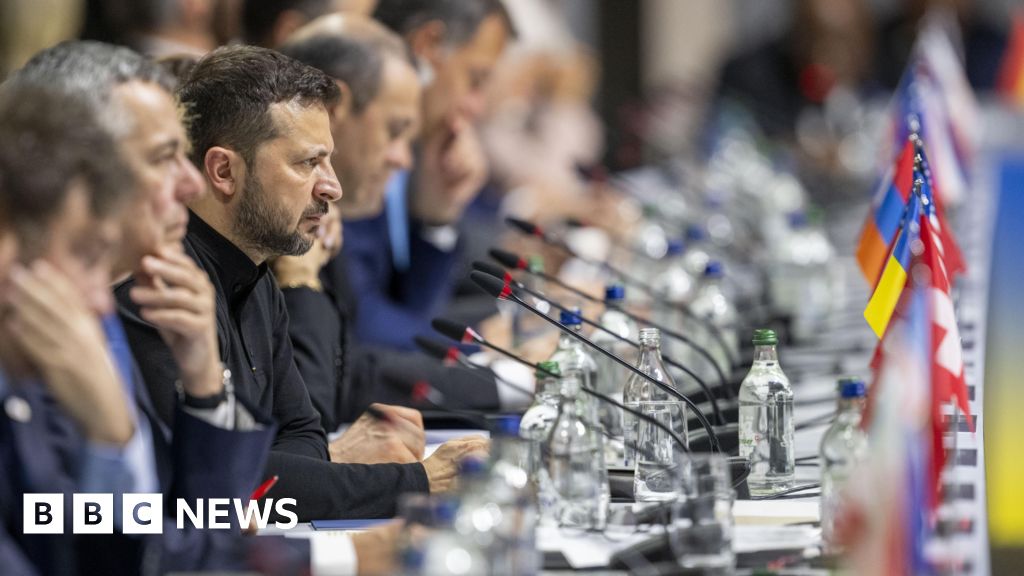World leaders attending a Ukraine peace summit in Switzerland are exploring ways to secure nuclear facilities and Ukrainian food exports.
They are seeking a final communiqué that firmly blames Russia for the widespread suffering and destruction caused by the war, which Kiev sees as a success.
But the Austrian leader said he did not expect the declaration to gain unanimous support from attendees.
More than 90 countries and international organizations attended the summit, which aimed to create the broadest possible support for a process that would help end the war in Ukraine.
Russia was not invited, and its biggest supporter, China, did not attend, raising doubts among some about the effectiveness of the summit.
Some of those gathered in the Swiss resort of Bürgenstock were not Ukraine’s closest supporters, including Saudi Arabia and Kenya, whose foreign minister warned Ukraine would have to make difficult compromises. Kenya has publicly opposed recent sanctions against Russia.
The final draft document, seen by Reuters, calls on Ukraine to restore control of the Zaporozhye nuclear power plant and the country’s Sea of Azov ports, which are currently occupied by Russia.
It also called the Russian invasion a “war,” a label Moscow rejects.
Humanitarian issues such as the return of prisoners and abducted children are also being discussed.
The most controversial topics, such as the status of the land under Russian occupation, will be left for later discussion.
Summit organizers hope to announce a second meeting, possibly in Saudi Arabia, to build on what has been achieved.
Dutch Prime Minister Mark Rutte said participants were united in seeking peace in Ukraine.
“We all know that we are just at the beginning, the beginning of the road to peace,” he said.
“While some of us here have different ideas about how to truly achieve peace in Ukraine, make no mistake… we share a common vision of principles, values and decency.
“You would not invade another country. You would not kidnap children. You would not play politics with the world’s food supply. You would not compromise nuclear security.”
All delegations had been expected to sign a final statement condemning the Russian invasion, but Austrian Chancellor Karl Nehammer told reporters on Sunday that the statement would not receive unanimous support.
Ukrainian President Volodymyr Zelensky said on Saturday that the results of the Swiss summit would be communicated to Moscow “so that at the second peace summit we can truly end the war”.
Russia has called the events in Switzerland a waste of time, and Russian President Vladimir Putin said on Friday he would agree to a ceasefire if Ukraine withdrew its troops from four regions that Russia partially occupied and claimed it had annexed.
But one day later Western leaders attending the summit strongly rejected Putin’s proposal.
Italian Prime Minister Giorgia Meloni described it as “propaganda”, while British Prime Minister Rishi Sunak accused Putin of “creating a false narrative about his willingness to negotiate”.
On Sunday, Kremlin spokesman Dmitry Peskov said the Russian leader did not rule out talks with Ukraine, but added that guarantees were needed to ensure the talks were credible and that Zelensky could not be part of them .

